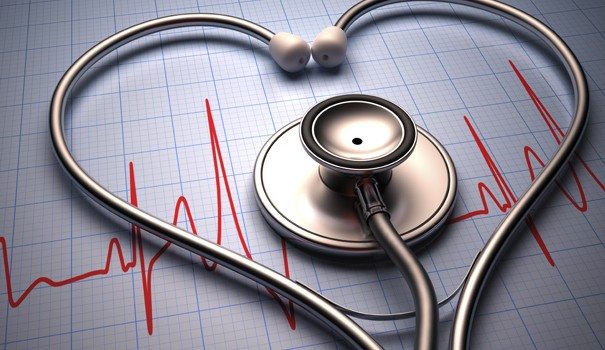University of Arizona College of Medicine – Phoenix Division Chief of Cardiology Martha Gulati, MD, answers questions about the novel coronavirus (COVID-19) as it pertains to people with heart issues.
Are heart patients more at risk for severe complications from the coronavirus?
Yes. The highest risk groups seem to be people with hypertension and those with heart disease.
What are you telling your patients?
I am telling them to stay home, self-quarantine and stay safe. If they are stable, they don’t need to be out and about. I’m also telling them to take care of themselves because the news is scary and stressful and the heart and stress are not good friends, particularly when they have underlying heart disease.

What kind of questions are heart patients asking?
The most common questions are about ACE inhibitors and ARBs, which are common medications for cardiac patients.
Our information from the American College of Cardiology, the American Heart Association and Heart Failure Society of America:
If you take medicine to lower your blood pressure or to treat heart failure, including angiotensin converting enzyme (ACE) inhibitors or angiotensin receptor blockers (ARBs), it’s important to continue taking it. Stopping your medication or even skipping a dose may cause problems.
As part of treatment, patients with high blood pressure or heart failure are frequently given RAAS antagonist drugs. These medications include ACE inhibitors (for example, enalapril or lisinopril), ARBs (for example, losartan or valsartan), and a combination drug called an angiotensin receptor-neprilysin inhibitor, or ARNI (sacubitril/valsartan). They lower blood pressure, reduce strain on your heart, and improve blood flow by relaxing your blood vessels.
The site of action for these drugs also appears to be the means by which COVID-19 enters the human body.
In the statement, experts stress there is no clinical data showing that ACE inhibitors or ARBs have an effect — good or bad — on COVID-19 in people, or in patients with COVID-19 and heart disease.
Therefore, the experts recommend that patients who have been taking these medicines to treat heart failure, high blood pressure, or ischemic heart disease (a condition like coronary artery disease in which blood flow is limited to the heart), continue to do so.
People with heart disease appear to have a higher chance of getting COVID-19. In addition, if heart patients do come down with the viral disease, they have a higher chance of severe illness and complications.
Please stay on your medications. As always, remember to talk to your health care team before changing your medication or treatment.
Has the coronavirus changed how you are seeing patients?
We are using telemedicine. We started with just phone calls, since this was approved for Medicare patients, but we are using it with anyone who agrees because we don’t want to expose them to others or to us. As of this week, we will use telemedicine with videos. For the foreseeable future, telemedicine will be our “clinic” unless we think someone needs to be seen in person. Used correctly, this can change how we see patients and allow accessibility to experts anywhere. People in remote parts of Arizona don’t always have the ability to come to Phoenix. Now actually, they can from their own dining table or office.
What should patients with heart disease know about the coronavirus?
Although the main target of the virus is the lungs (it is a SARS-CoV, meaning it causes severe acute respiratory syndrome ), the virus can tax a heart that is already compromised because with a lung infection, the heart has to work harder. Additionally, it can infect the heart muscle directly and cause inflammation and heart failure, called myocarditis. There is evidence that COVID-19 can also result in heart attacks from microthrombi. We are seeing reports from our colleagues in New York City and some in China who have seen rapid onset heart failure and atrial fibrillation. Forty percent of those infected with COVID-19 had underlying cardiovascular conditions.
Additionally, patients need to know:
1. There is no cure – yet. There are ongoing studies with the World Health Organization looking at what has worked. There is data from China, South Korea and Italy teaching us things, but nothing has been proven. Protection from the virus is key for cardiac patients, which means avoiding people and trying to avoid the virus.
2. If you have symptoms, you may need to get tested and may need to be hospitalized depending on your symptoms.
3. You can see your doctor/cardiologist if needed. Start by calling first and seeing what can be done remotely.
4. If you have urgent symptoms, you must call 9-1-1. We don’t want you in the hospital if we can prevent it, but we also don’t want you to avoid the hospital if your life is at risk from your underlying heart condition. We will do our best to protect you from COVID-19. We know your symptoms don’t stop just because the coronavirus appeared.
It’s important for patients with heart disease to follow CDC recommendations to prevent infection. The virus is thought to spread from person to person among individuals within six feet of one another after someone with the virus sneezes or coughs. Defensive steps everyone can take include:
• Avoid people who are sick.
• Wash hands thoroughly with soap and water for at least 20 seconds.
• Cover your mouth when you cough or use the inside of your elbow.
• Cover your nose when you sneeze or use the inside of your elbow.
• Avoid touching your eyes, nose, and mouth.
• Clean surfaces touched often like doorknobs, handles, steering wheels, or light switches with a disinfectant.
In addition, people at higher risk should practice social distancing by avoiding large gatherings and limiting travel.




